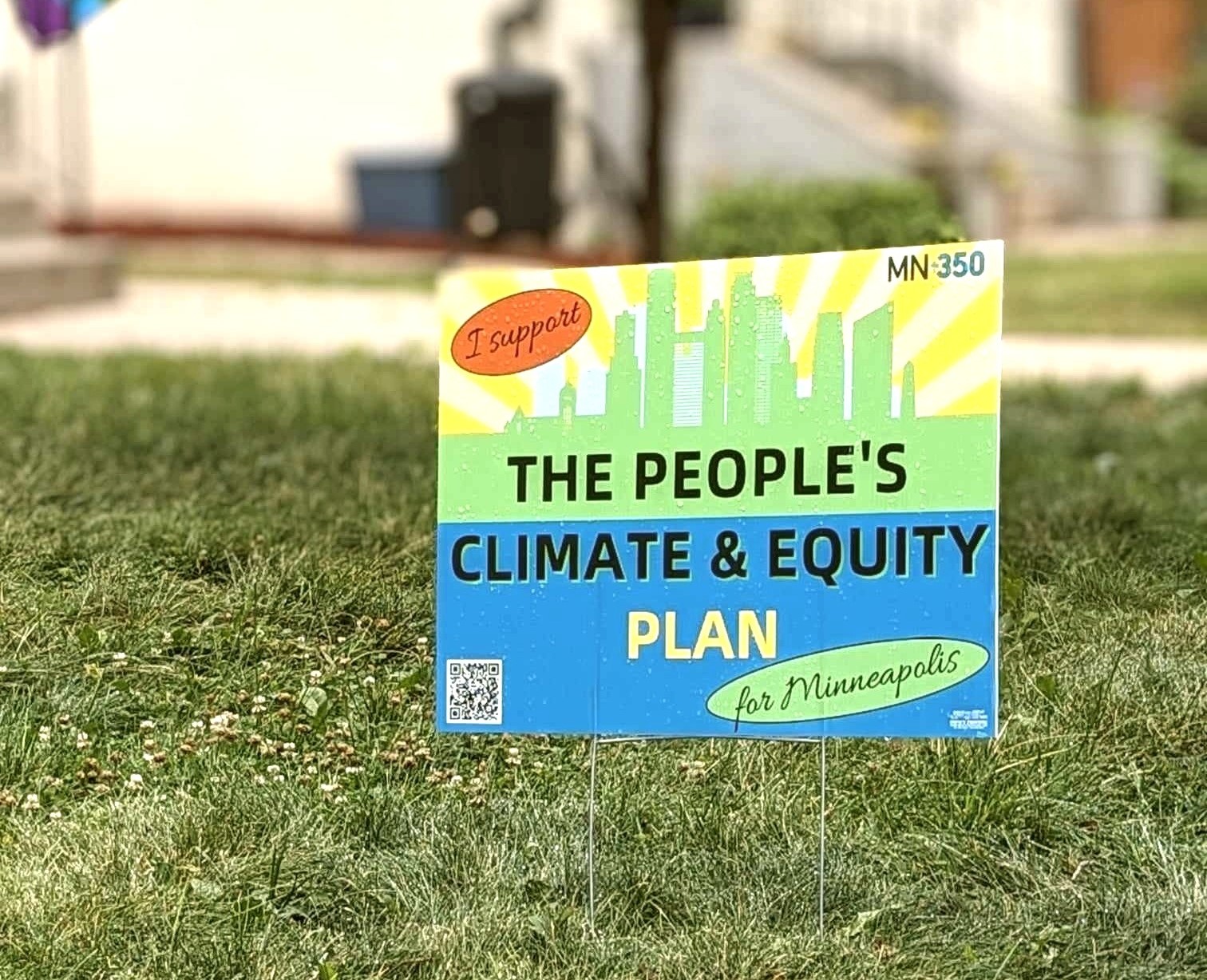The new union says bosses are retaliating. Leadership says workers are creating ‘false narratives.’
By Jay Boller
MN350, a progressive climate advocacy organization, trumpeted the January unveiling of the People’s Climate & Equity Plan, a localized version of the Green New Deal it helped draft with like-minded orgs. The press release announcing it references “union apprenticeships,” “higher-paying union jobs,” and "access [to] union careers.”
Unsurprisingly, the 12-year-old Minneapolis nonprofit is the type of place that attracts workers with favorable views of the labor movement. “We see ourselves as a community-led and volunteer-powered climate justice group, with an explicitly pro-union organizing posture,” says Andy Pearson, a nine-year MN350 vet who specializes in pipeline resistance.
This past spring, union activity began bubbling inside the offices of MN350. Talks began in April with Workers United, an affiliate of Service Employees International Union, and 10 out of 10 staffers had signed union cards by June. The next step—presenting your union to the bosses—tends to work two ways: voluntary recognition, which sidesteps surplus rigmarole, or, failing that, scheduling an election to be overseen by the National Labor Relations Board.
MN350 leadership opted to recognize its unionizing workforce, but instead of clearing the runway for contract negotiations, things reportedly got messy. Fast.
“That voluntary recognition has yet to be affirmed to the NLRB; our leadership is withholding that affirmation,” Pearson says. “We’re very confused by it and, of course, we’re frustrated.”
Pearson says signs of acrimony appeared within days of the union reveal, alleging that management asked for concessions like: waiving the right to file objections with the NLRB, waiving the right to strike, and even waiving the right to talk publicly about the union with supporters. “Over the last year staff has been told they’ll be fired or disciplined if they communicate with our board of directors,” he says.
Then, on August 1, MN350 slapped Pearson with a formal disciplinary warning and, that same day, terminated Nancy Beaulieu, a MN350 organizer who has worked on treaty rights for the past six years. Pearson says he can’t get into specifics, but he describes both actions as “bogus” and “clearly related to union activity.” (Beaulieu agrees with that characterization.)
In response to the union’s airing of that turmoil, the Giniw Collective, an Indigenous women/two-spirit-led environmental justice org founded by tribal attorney and MN350 board member Tara Houska, publicly accused Pearson of “racist, tokenizing, underhanded patterns of engaging the frontline communities & BIPOC folks.” (Beaulieu, a citizen of the Leech Lake Band of Ojibwe, strongly disagrees with that characterization.)
Theresa “Tee” McClenty, MN350’s newish executive director, tells Racket that there’s “a false narrative circulating about the board and me regarding unionization.” She reiterated her support of the union, adding that Pearson and Beaulieu were “not disciplined due to unionization at all,” though she declined to elaborate due to confidentiality concerns. “I still value the power of unions but not when they create false narratives,” she adds. Speaking generally, McClenty reports that “yes, absolutely I’ve experienced [racism] and continue to” as a Black woman in the workplace.
“There’s no false narrative; there’s animosity and retaliation for our union efforts,” Beaulieu counters. Her union has filed a complaint with the NLRB, and is “urgently” seeking the reinstatement of Beaulieu, the expungement of Pearson’s disciplinary writeup, and “a full investigation into internal working conditions at MN350,” Pearson says.
Meanwhile, Beaulieu says the treaty-rights campaign she helmed since 2017 has been mothballed: “We’ve worked for over five years, and we’re winning… now everything I worked for is gone now.”
“All we’re asking for is fair discipline, and an environment where we feel safe, heard, and part of the big decisions,” Beaulieu continues. “We’re the ones with our boots on the ground; we built MN350, and ya know what? We’re a movement, not a corporation—we need a leader, not a boss. I know we’re going to win.”

